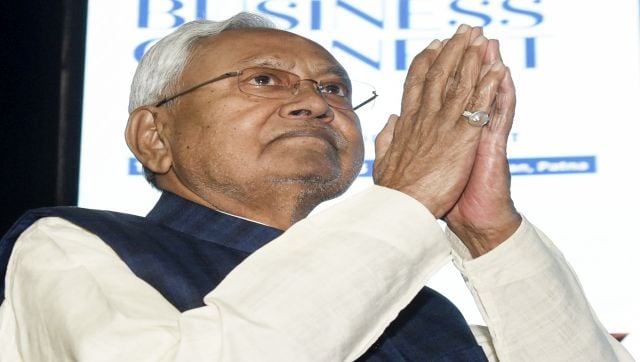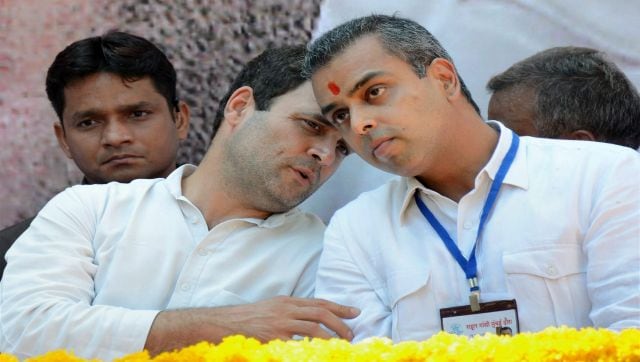'Let's go positive' — that's the cruz of Aam Aadmi Party's (AAP) strategy to take on BJP and Congress in the upcoming Delhi assembly election. The message has been conveyed loud and clear to all party MLAs, leaders and volunteers with a special emphasis on the work done by the Arvind Kejriwal-led Delhi government in the last five years, with a roadmap for the next five years.
On any day of the week, one can find party workers and volunteers in small groups led by senior party members sitting either on the lawns or in conference rooms of the AAP headquarters at Rouse Avenue in New Delhi, busy exchanging notes. They are either undergoing training sessions or having discussions and meetings for the upcoming Assembly elections.
The main administrative office section is always abuzz with people from different constituencies discussing their election campaign plan or waiting to meet a senior leader. Not resorting to any negative narrative to attack its political opponents, the AAP has chalked out a blueprint that encompasses direct dialogue with its voters through multiple tools, on multiple platforms and communicate Delhi government's achievements and share its future vision.
"We're communicating positive aspects of Delhi government and the work done for the citizens on multiple platforms. We're talking about good governance and how it has impacted lives of millions in Delhi. The government provides free water and subsidised electricity, and through this people save money which they utilise in improving their living standard and meet their aspirations, however small it may be," Pankaj Gupta, national secretary of AAP told Firstpost.
New-age campaigning
AAP has decided to give a twist to its campaigning style by not resorting to traditional public addresses. Instead it plans to go to the public and ask them about achievements and problems in respective localities by organising Jan Samvad (public dialogue) and Mohalla Sabhas.
"We're not delivering lectures in public. Instead, by organising Mohalla Sabhas and through Jan Samvad, we're asking people to talk about the work being done in their areas, problems they have been facing, what more needs to be done, etc. We want voters to interact rather than be passive listeners. We want to reach out to the last person," Gupta added.
AAP leaders confirmed that they don't plan to emulate the BJP or the Congress' style of campaigning — in large groups with banners and flags. Instead, the AAP MLAs are meeting small groups of people from their respective constituencies at market places, community centres and public parks over a casual chat. AAP's Badarpur MLA Narayan Dutt Sharma organised a Mohalla sabha at Budh Vihar on Thursday. "It was a unique session where we interacted with our MLA Narayan Dutt Sharmaji and told him about the work done in our area and what needs to be done. Mohalla sabhas make it easier for the voters to meet their MLA and air their grievances," said Ankit Chowdhry, a resident of Budh Vihar.
The party has also planned a series of Town Hall meetings where Kejriwal will interact with the audience. In a first of its kind initiative, the party released 'AAP's Report card' in a Town Hall — the first in the series of campaign strategies planned to showcase AAP government's achievements. The report card highlighted top ten achievements of the Kejriwal government.
Kejriwal has issued instruction to all the MLAs to be in their offices daily in the morning to meet people, listen to them and communicate the work done by the government and report them back to the headquarters.
AAP has hired the services of election strategist Prashant Kishor's consultancy firm Indian Political Action Committee (I-PAC) to disseminate the party's message and the report card to a larger audience through a door-to-door campaign, along with the slogans like 'Achhe beetey paanch saal, Lagey raho Kejriwal'.
Building volunteer base
The core strength of AAP, a seven-year old political party, which was formally launched on 26 November, 2012, is its volunteers. Starting from its formative days, the party has strengthened its volunteer base across 70 Assembly segments.
Ahead of the upcoming elections, the party has gone for large-scale recruitment of new volunteers and has trained them on contact programme, door-to-door campaigning, booth-level mobilisation of voters, among others.
The BJP has always benefitted during the elections from the cadre of its ideological fountainhead the Rashtriya Swayamsevak Sangh (RSS), who work at the grassroot level to mobilise voters. The AAP has built its volunteer base almost on a similar line that would give a tough fight to BJP. The result of 2015 Delhi Assembly election in which AAP bagged 67 seats in the 70-seat Assembly proved the point.
"We're conducting classroom and on-ground training for our new volunteers, acquainting them with the tools of campaigning and giving them tasks. The objective is to create more vibrant volunteers. Volunteers are going to be the talking points and training will make them aware of what they need to communicate with citizens and how to present our side of success stories," a training instructor at AAP headquarters said.
Key focus areas of campaign
Free water, subsidised electricity, education (remodelled Delhi government schools) and Mohalla clinics — are the four major thrust areas (or public utility services) that AAP would like to play up in its poll campaigns and on social media.
"Mohalla clinics are a major hit. Though we're yet to achieve 100 percent target of setting up 1000 clinics, we're sure that it would be completed in our second term in the government. People have immensely benefitted from it. The success will speak for the party," a volunteer said.
Women's safety, employment and skill development for the youth, stepping up public transport, reducing air pollution, are the other key focus areas for AAP in its election campaign. "After the report card, we will release our manifesto in sometime. It'll be futuristic in nature and announce what AAP government intends to do in the next five years. It won't be just electoral promises, but achievable targets with deadlines," an AAP source told Firstpost. The manifesto will give a roadmap of making the national capital - a world class city in next four years, as promised by Kejriwal.
Resorting to crowd funding
To contest this election, AAP has resorted to crowd funding. "I've been an MLA for five years and to contest this election, I've resorted to crowd funding, a new thing in our democracy. I made a presentation of my work in Greater Kailash and asked people to contribute whatever amount possible — from Re 1 to Rs 1,000 — along with their blessings. It's unheard of in Indian politics," said AAP MLA from Greater Kailash, Saurabh Bharadwaj.
Greater Kailash constituency is one of the upmarket areas of New Delhi.
No controversies, stick to issues, AAP MLAs told
For quite some time, instead of making scathing attacks on Prime Minister Narendra Modi or the Centre, as he used to when he had newly become the Chief Minister of Delhi, Kejriwal has gone for course correction and tactically shifted from aggressive posturing to a more focussed and mature leadership. For the past few years, he has steered clear of entering into any controversy with the Centre and his aim has been to showcase his government's achievements and let the aam aadmi decide who they want to vote for.
Even with the on-going protests across India over CAA and NRC, the diktat from the top leadership for its cadre is to stay focussed only on issues impacting the lives of 35 lakh households in the National Capital.
The leaders have also been instructed to stay away from making any controversial statements or rake up any issue that could possibly lead to controversies.
"There're lot of grievance among citizens, especially Muslims on the issue of CAA and NRC. Protest agitations are continuing at many places against the policies of Narendra Modi government. Though some of our leaders wanted to speak on this issue, they have been asked right now to focus on the work that Delhi government has done in each constituency and how it has impacted their lives in a positive manner. We've asked our leaders and workers to stay away from controversial issues," a senior AAP leader told Firstpost on condition of anonymity.
January 03, 2020 at 07:20PM









No comments:
Post a Comment